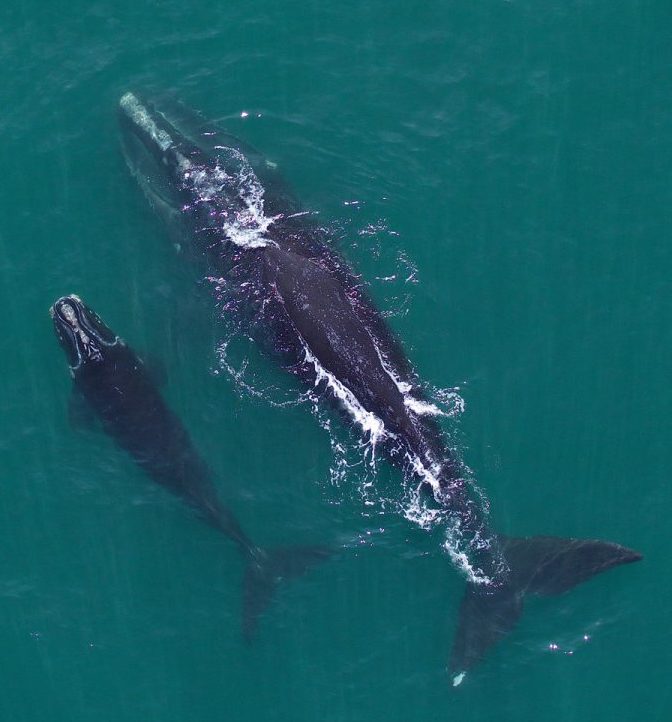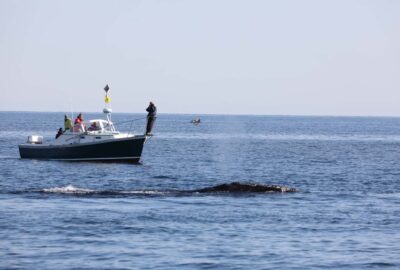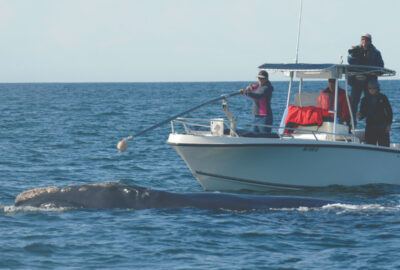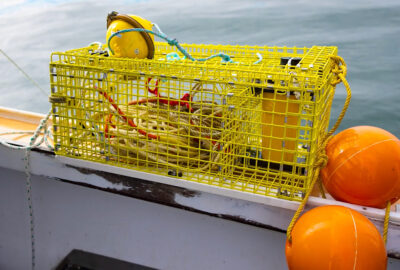Size Matters
New Study Reveals Smaller Female North Atlantic Right Whales Have Fewer Calves
By New England Aquarium on Thursday, May 12, 2022


By Maria Palomino
Scientists from the New England Aquarium’s Anderson Cabot Center for Ocean Life coauthored a new study published in the journal Marine Ecology Progress Series that builds on earlier research and indicates smaller North Atlantic right whales produce fewer calves over their reproductive years. The new study, led by postdoctoral researcher Joshua Stewart at NOAA Fisheries’ Southwest Fisheries Science Center, evaluated changes in female right whales using measurements derived from studying aerial photos taken over the course of nearly two decades.
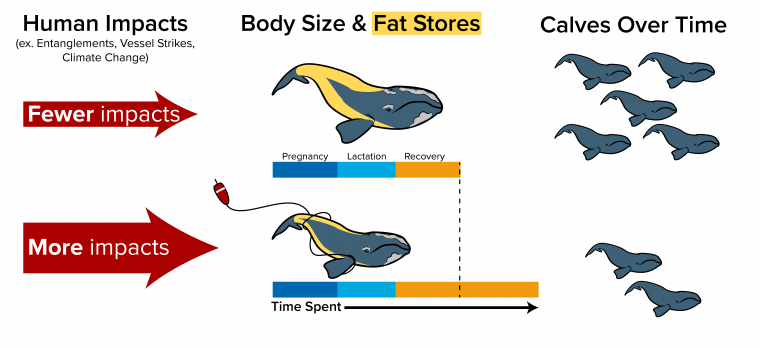
Researchers gained access to the photos from the North Atlantic Right Whale Catalog, a resource curated by the Aquarium—with some one million photos—representing the world’s central repository for North Atlantic right whale photographs. For the study, scientists selected and reviewed only aerial images, amassing data on 41 reproductive females ranging in age from six to 32 years, who had zero to six young over a 19-year period. Their findings—taken in consideration with the species’ current total population, estimated at fewer than 350—indicate declining body size, in part due to frequent entanglements in fishing gear, is a likely contributor to low birth rates over the past decade.
“After decades of research on this species, we have learned about the stressors right whales face and, with this study, have gained further insights into how these stressors are affecting their reproduction,” says study coauthor and Aquarium Senior Scientist Amy Knowlton. “The remedies to address these threats are clear: shifting how humans operate in the ocean so that they do not inadvertently harm whales. That means adapting to weaker ropes used for fishing and ultimately ropeless fishing gear as well as broader areas of vessel speed restrictions in the right whale’s range. With these changes, we could reverse the decline we are witnessing in this species.”
The researchers say smaller body size also constrains postpartum recovery due to the energetic costs associated with giving birth. The study found that larger females appear to have more offspring that are bigger and more robust during their reproductive years. Scientists worry that the smaller-sized right whales may not have the ability to reverse a population decline that is at a 40-year low. Study coauthors include Aquarium Senior Scientist Philip Hamilton, as well as collaborating researchers from Oregon State University, Woods Hole Oceanographic Institution, and SR3.
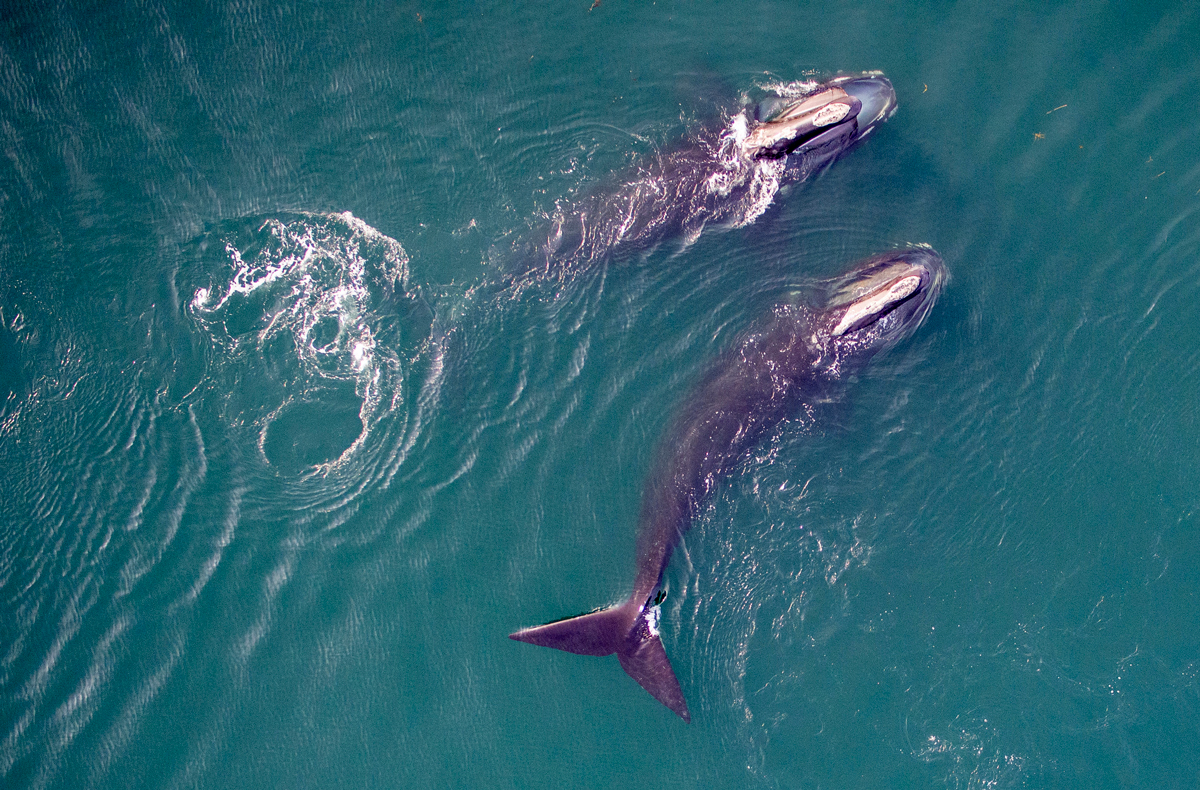
The North Atlantic right whale is among the world’s rarest and most endangered large whale species. They primarily inhabit Atlantic coastal waters off New England, further north in Canada, and in the southeastern U.S. Their pursuit of shifting feeding grounds (due to warming ocean temperatures) is bringing them into commercial fishing areas and shipping lanes, leaving them vulnerable to ship strikes and fishing gear entanglements. The study’s authors note that stress from entanglements likely contribute to reduced right whale birth rates by diverting energy away from reproduction and reducing fecundity, or reproductive success.
Since 2017, there have been 34 documented right whale deaths. In addition to declaring an ongoing Unusual Mortality Event, NOAA Fisheries has listed right whales as a “Species in the Spotlight.” This designation calls for further study of right whales to better understand their overall state of health, migratory patterns, and population status. Findings from this new study underscore the significant existential challenges faced by this unique and critically endangered species.
The New England Aquarium is home to the longest-running North Atlantic right whale research and conservation initiative in the world. Established in 1980, the Kraus Marine Mammal Conservation Program helps inform national and international efforts to protect these magnificent giants.
